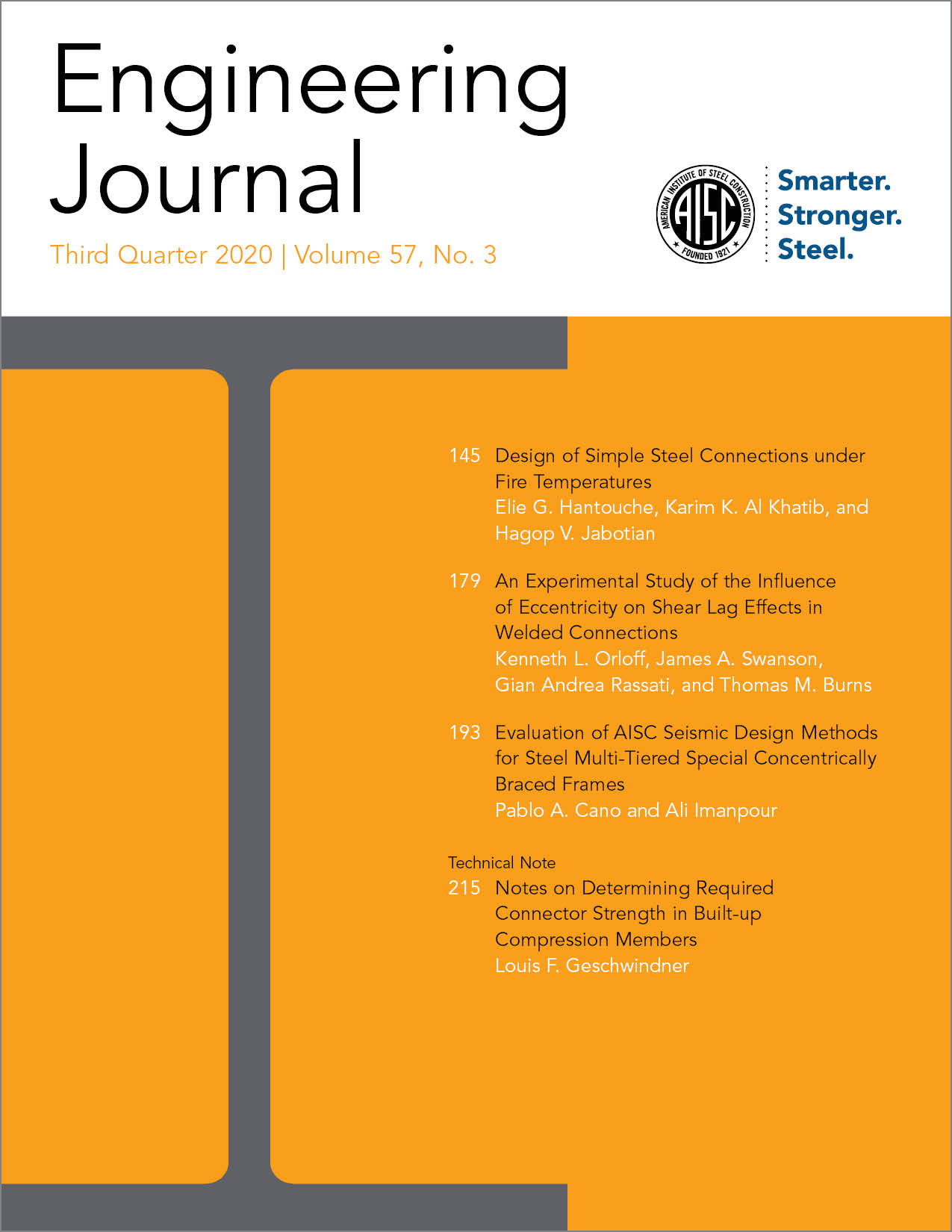Evaluation of AISC Seismic Design Methods for Steel Multi-Tiered Special Concentrically Braced Frames
DOI:
https://doi.org/10.62913/engj.v57i3.1166Keywords:
Steel multi-tiered concentrically braced frame, design standards, column buckling, cyclic-pushover analysisAbstract
Steel multi-tiered concentrically braced frames (MT-CBFs) are commonly used in North America as a lateral load resisting system of tall single-story buildings. Past studies show that MT-CBF columns designed in accordance with the 2010 AISC Seismic Provisions are prone to buckling due to a high axial compression force combined with in-plane bending moments caused by the nonuniform distribution of inelastic brace deformations along the frame height. Special design provisions have been introduced in the 2016 AISC Seismic Provisions to address flexural demands imposed on MT-CBF columns and prevent column instability. In this paper, the seismic design methods for multi-tiered special concentrically braced frames are evaluated using the nonlinear finite element analysis method. A two-tiered special concentrically braced frame was then created, and nonlinear static and dynamic analyses were performed to evaluate the seismic performance of both frames. Analysis results confirmed that the inelastic deformations in the frame designed using the 2010 requirements are not uniformly distributed but rather concentrated in one of the tiers and cause column instability under large story drifts, whereas, the 2016 design method significantly improves the distribution of inelastic deformation along the height of the frame and prevents column instability. Furthermore, it was found that the 2016 AISC Seismic Provisions accurately estimate the axial load but overestimate the in-plane flexural demands and underestimates the out-of-plane flexural demand. Nonetheless, the overestimation of in-plane flexure demands results in acceptable strength capacity even though out-of-plane flexural demands is underestimated.

